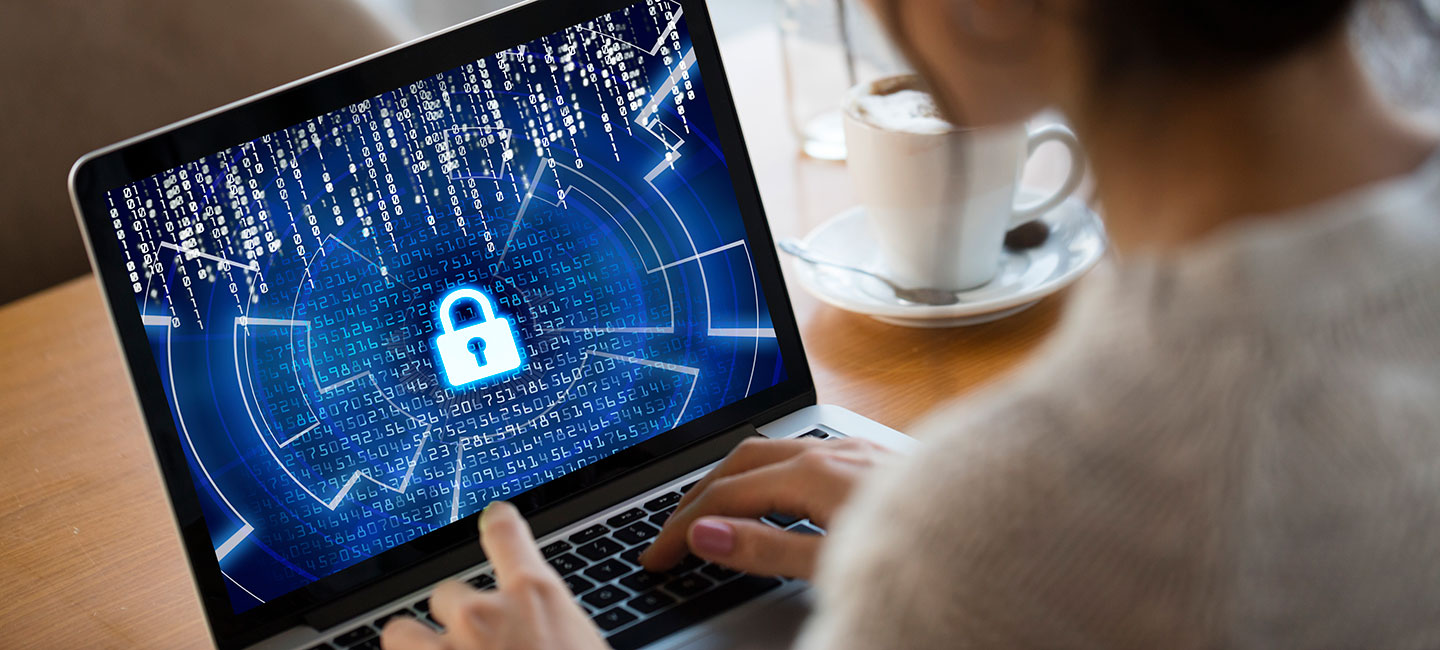Do You Know How to Defend Your Home from a Cyber-attack?
October is Cybersecurity Awareness Month. The goal is to not only bring awareness to the importance of cybersecurity but to increase one’s knowledge to ensure that even after the month ends, the topic stays relevant. And when it comes to cybersecurity, everyone could learn how to be a little more secure.
Cyber-attacks happen more often than most people think. Every second a hacker is trying to forge an attack and steal someone’s personal information. At Moffitt Cancer Center, the cyber security team has encouraged the philosophy of not only protecting the cancer center but protecting yourself.
How can you protect yourself from a hacker? It starts at home.
Mark Fleeting, a cybersecurity analyst at Moffitt, shares tips on how to properly defend your home from a cyber-attack.
Defending your home
“Securing your wireless network is a key part of protecting your home,” said Fleeting.
Almost every home network starts with a wireless or Wi-Fi network. This is what enables all your devices to connect to each other and the internet. Most home wireless networks are controlled by your internet router or a separate, dedicated wireless access point. They both work the same way, by broadcasting and receiving wireless signals. The devices in your house can then connect via these signals.
Fleeting recommends changing the technician-provided default password that is used to connect devices to your network, stating that technicians will often photograph the password during the installation of the equipment to make it easier for them to remember the password if needed.
“Make sure the password you create to connect your wireless devices to your network is unique and strong and is different from the administrator password used to manage your router,” Fleeting said. “You only need to enter the password once for each of your devices for it to remember."
When having visitors connect to your Wi-Fi, Fleeting suggests adding a guest network.
“Many home routers have a guest network built-in. This allows any visitor to connect to the internet, but it isolates your home network,” he said. “If you add a guest network, you can create a unique password just for them.”
You can also control who connects to your network by managing the MAC address.
“Each device has a MAC address, a digital fingerprint used to communicate on your home network,” Fleeting said. “Using the correct configuration tool on your home router, you can lock down your network so only those MAC addresses authorized to be on your network can communicate.”
Your Home Devices
Protecting your home network from a potential hacker goes beyond just securing the network. It is also important to protect the devices in your home as well.
To properly protect the devices within your home, Fleeting suggests installing and updating all antivirus software, plus making sure your firewall is running.
“Do not install browser plugins and turn off your computer when you are not using it,” said Fleeting.
He also warns against using your device’s administrative account. He says you should create a second account to log into your device, one that does not have administrator rights.
“Back up your devices, purchase a portable hard drive to back up your unique data,” Fleeting said.
Your Password
It is no secret that having a strong password is another key component to protecting your home from a potential threat. Fleeting’s advice is to have a unique and strong password for everything you do.
“Pick a password management tool and allow this tool to choose your password,” said Fleeting.
His other advice is to never share passwords, even with those whom you are close with stating that if knowing each other's passwords is important, use the family sharing option in your password manager.
“Use two-factor authentication every single time you can. Almost all major services and social media sites use two-factor authentication,” says Fleeting.



